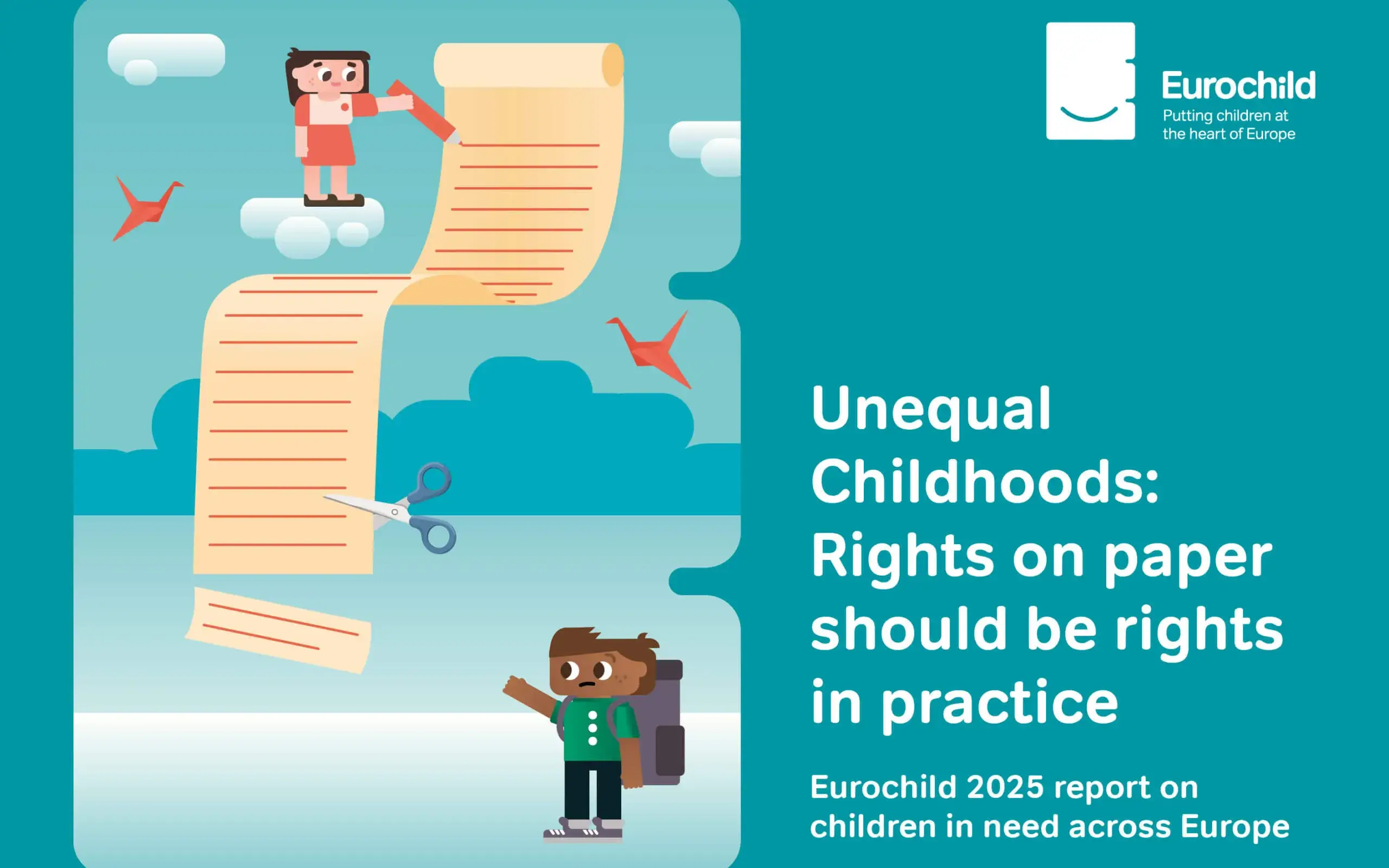
On World Children’s Day, Eurochild releases its “Unequal Childhoods” report, revealing that 24.2% of children in the EU remain at risk of poverty or social exclusion.
Eurochild marked World Children’s Day on 20 November with the launch of its flagship report, “Unequal Childhoods: Rights on paper should be rights in practice”. Compiled using data from 84 member organisations across 36 European countries, the publication offers an in-depth overview of the state of children’s rights and child poverty across the continent.
According to the latest Eurostat figures for 2024, 24.2% of children in the European Union are at risk of poverty or social exclusion. Although this represents a slight improvement compared to 2023, when the rate stood at 24.8%, progress varies significantly between countries. Child poverty increased in ten EU member states, decreased in sixteen and remained unchanged in one. Bulgaria records the highest share of children at risk (35.1%), followed by Spain (34.6%) and Romania (33.8%).
“Despite progress made in some countries, child poverty and social exclusion remain far too high across Europe,” said Eurochild President Tanya Ward. “Lack of access to basic services and ongoing discrimination continue to affect the most vulnerable children. As more countries face attacks that undermine democracy and restrict the work of those defending children’s rights, European leaders must work closely with civil society to protect and promote the rights of every child in Europe and beyond.”
The report provides structured country profiles covering a wide range of rights enshrined in the UN Convention on the Rights of the Child, including child participation, protection systems, mental health and child poverty. It also examines children’s rights in the digital environment, access to affordable housing, public investment in social protection, progress on the implementation of the European Child Guarantee, and insights from the 2025 European Semester and EU enlargement process, while tracking the rise of anti-rights movements.
Eurochild concludes with concrete recommendations to help governments strengthen policies and ensure that children’s rights recognised on paper translate into real improvements in children’s daily lives.






Add new comment